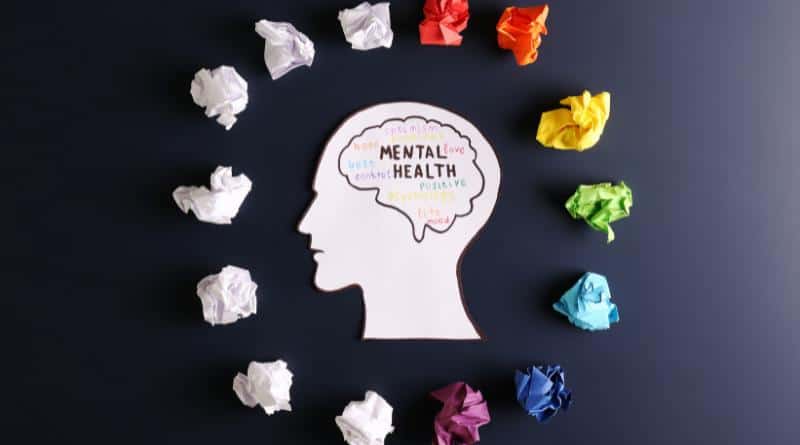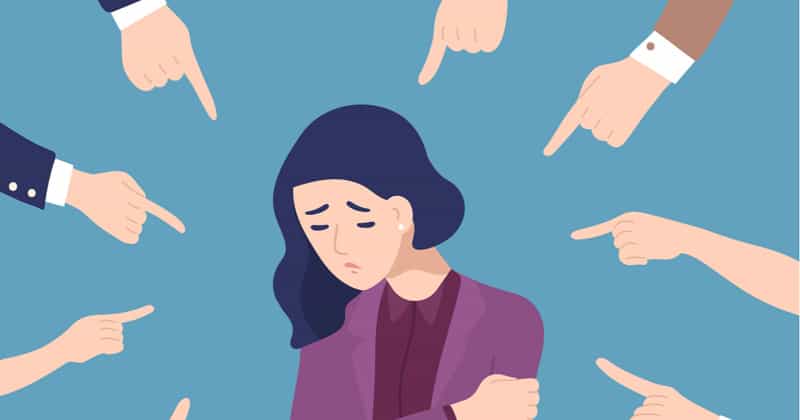- 98143 70700
- info@thehermitage.rehab
- 22, Circular road, Opp. VR Ambarsar, Amritsar

Who decides what is ‘normal’ and what is ‘abnormal’? Where is the line between ‘different’ and ‘sick’? What is ‘crazy’?
These are the questions that often arise in our minds but we tend to subdue them thinking society is the one to question and to answer.
Mental health without any doubt has been a sore subject in many homes because of the variation in Indian culture. When talking about psychological issues it is frequently, consciously or unconsciously taught to us that it is a subject of great stigma, prejudice, and discrimination, and humans suffering from any mental disorders are to be labeled as “MAD”.
For example, people living with depression are often stereotyped as lazy, while some judge those with anxiety as cowardly, or people with schizophrenia are thought to be under the influence of supernatural powers.
Therefore, people avoid or delay seeking treatment due to concerns about being treated differently or fears of losing their jobs and livelihood.
According to American Psychological Association (APA), “Stigma is the negative social attitude attached to a characteristic of an individual that may be regarded as a mental, physical, or social deficiency.
A stigma implies social disapproval and can lead unfairly to discrimination against and exclusion of the individual.”

Thus, Stigma is when someone views you in an nonconstructive way because you have a distinctive characteristic or personal trait that’s thought to be, or is, a disadvantage (a negative stereotype) leading to negative attitudes and beliefs toward you who has a mental health condition.
Stigma can lead to discrimination. Discrimination may be obvious and direct, such as someone making a negative or undesirable remark about your mental illness or your treatment.
Or it may be unintended or indirect, such as someone avoiding you because the person assumes you could be unstable, violent, or dangerous due to your mental illness. You may even judge yourself.
| Public | Self | Institutional | |
| Stereotypes & Prejudices | People with mental illness are dangerous, incompetent, to blame for their disorder, unpredictable | I am dangerous, incompetent, and to blame. | Involving policies of the government and private organizations that intentionally or unintentionally limit opportunities for people with mental illness. |
| Discrimination | Therefore, employers may not hire them, landlords may not rent to them. | These thoughts lead to lowered self-esteem and self-efficacy: “Why try? Someone like me is not worthy of good health.” | Intended and unintended loss of opportunity |
Now that we know what is stigma and discrimination, we also need to know what happens when it is directed toward someone.
1. Reluctance to seek help or treatment.
2. Reduced hope.
3. Internalizing negative beliefs.
4. Lack of understanding by family, friends, co-workers, or others.
5. Lower self-esteem.
6. Increased self-doubt and toxic shame.
7. Fewer opportunities for work, school, or social activities or trouble finding housing.
8. Increased psychiatric symptoms.
9. Bullying, physical violence, or harassment.
10. Difficulties with social relationships.
11. Health insurance that doesn’t adequately cover your mental illness treatment.
12. The belief that you’ll never succeed at certain challenges or that you can’t improve your situation.
13. Increased isolation.
14. Reduced likelihood of staying with treatment.

We as humans need to comprehend that when we hold judgments against individuals with mental health conditions, we are pushing them over the edge and creating a life for them that is not only unhealthy but extremely toxic to be in. It is our duty not to stand out and be a bypasses but rather learn to accept someone’s condition and recognize what they need to do to treat it, give support, and help educate others about the same.
This in itself can make a big difference.
WhatsApp us